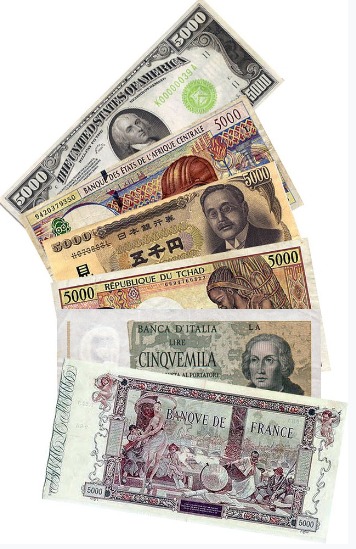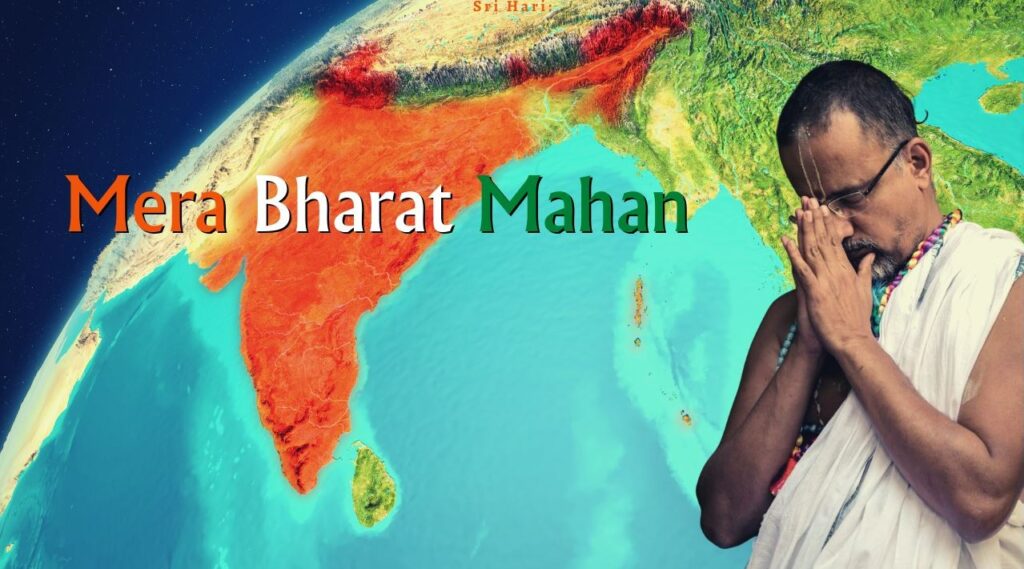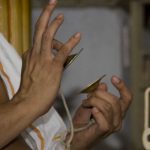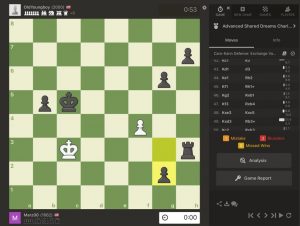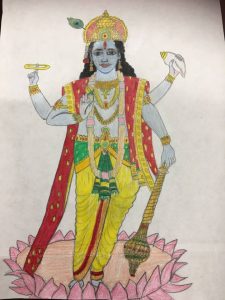When we go to any country, the way for us to get what we want there is by using the local currency – dollars in America, rupees in India, yen in Japan, etc. Likewise, when we wish to progress in our journey of spirituality or even progress in the material world with the help of prayers, the currency that we need is ‘shraddha’!
Divinity is beyond the ken of our senses. It cannot be perceived through sight, hearing, smell, taste, touch, or even our mind or intellect. Currencies or wealth in the mundane world are of no value in the journey of divinity, where we need to leave behind sensory perceptions and knowledge about the world.
The only currency that can take us forward in anything to do with divinity is Shraddha.
Our scriptures say,
yAdrishi yAdrishi shraddhA siddhir bhavati tAdrishi (Brahma Samhita). Success in any endeavor – be it a worldly endeavor with the help of God or any otherworldly endeavor – is rewarded commensurate with our shraddha.
Bhagavan Sri Krishna says in Bhagavad Gita, “shraddhAvAn labhate jnAnam…”. Only he who has shraddha, attains divine knowledge or wisdom.
The Vedas say, shraddhAm bhagasya mUrdhani. Shraddha is the crest jewel of divinity.
The Sanskrit word ‘shraddha’ does not have a direct equivalent in English but rather includes a combination of qualities like keenness, sincerity, faith, enthusiasm, humility, attention, one-pointedness. When we perform an act with shraddha, it implies that we do it with full effort in terms of sincerity, ability, intention, and attention.
When it comes to bhakti, prayer is a vital part that can enable us to connect with Bhagavan, and the key factor in prayer too is shraddha.
Bhagavan himself enumerates different types of bhaktas. The starting level bhaktas are ‘aarthis’ and arthaarthis’. An ‘aartha-bhakta’ has a need to get rid of an affliction. He/she prays for Bhagavan to remove his troubles. An ‘arthaartha-bhakta’ is one who prays to Bhagavan for a better life and, say, more comforts. Both these types of bhaktas understand the value and compassion of divinity and wish to tap into that divine grace in order to lead a better worldly life. The third stage of bhakta is a ‘jignaasu’ who has understood that desires are an unending vicious cycle and wishes to be free of all wants. For such a devotee also, prayer is the way to connect with Bhagavan and seek to be desire-free.
For the prayers of all these three types of devotees to be fulfilled, shraddha is the basis. Bhagavan says that the amount of grace is commensurate with the amount of shraddha in the supplication. The more shraddha we pray with, the greater is the outpouring of Bhagavan’s grace to fulfill our prayer sooner.
The fourth type of bhakta that Bhagavan speaks of is the ‘jnani’, who has attained Bhagavan, is devoted to Bhagavan for devotion’s own sake, and is a standing example of the shraddha that the others aspire for.
For those devotees who seek to attain that state of joy and bliss as a jnani or prema bhakta, and who wish to love and serve the Guru/Bhagavan for love’s own sake… for them shraddha is the sole currency that can get them to that highest state.
So in essence, if we have shraddha, we have Guru’s/Bhagavan’s grace. Nothing else matters. When we have shraddha, we get a silent reward from the Guru in the heart, which is far more precious than public reward or recognition, etc.
“so hai akat kahAni… guru mile brahmajnAni”, sings Kabirdas ji. When, say, we chant or read Srimad Bhagavatam purely for the Guru/Bhagavan. He blesses us immensely. ‘akat kahAni’ means a story that can never be spoken of. How can one explain love unless someone experiences it? It cannot be explained in words. Similarly, the silent reward for shraddha, in the form of a sudden burst of love, a sudden burst of joy, a sudden melting of heart while reading Bhagavatam – we don’t need to (or even should not) tell anyone. Yet we need to understand that this is the silent reward from Bhagavan because He silently sees everything.
That is the wonderful reward of shraddha. That is what attracts divinity to us. That is the beauty of the path of bhakti.
Based on talks of Sri Ramanujamji, disciple of HH Maharanyam Sri Sri Muralidhara Swamiji
___________________________________________________________
Click here to go back to the October 2022 newsletter page:
https://godivinity.org/newsletters/nama-dwaar-newsletter-october-2022/
